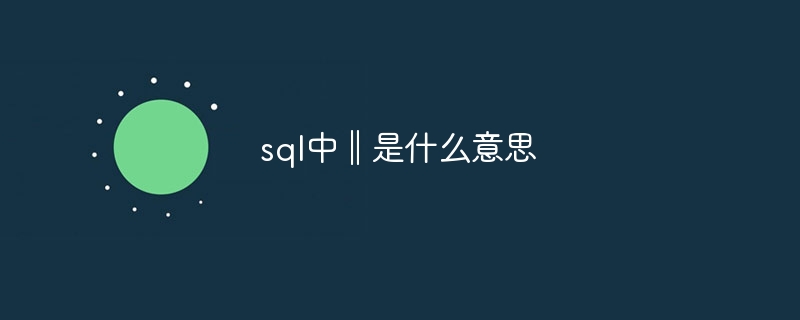What does ‖ mean in sql
- 下次还敢Original
- 2024-04-29 16:30:24674browse
The | operator in SQL represents a logical OR operation, connecting two Boolean values and returning a Boolean value: if both operands are TRUE, the result is TRUE. If both operands are FALSE, the result is FALSE. If one operand is TRUE and the other is FALSE, the result is TRUE. It is often used to combine conditions in the WHERE clause. It has lower priority and requires careful use of parentheses.

The | operator in SQL
The | operator in SQL represents a logical OR operation, which combines two Boolean values (TRUE or FALSE) are concatenated and a Boolean value is returned.
Operation rules:
- If both operands are TRUE, the result is TRUE.
- If both operands are FALSE, the result is FALSE.
- If one operand is TRUE and the other is FALSE, the result is TRUE.
Syntax:
<code><operand1> \| <operand2></code>
Example:
-
TRUE \| TRUE=> TRUE -
FALSE \| FALSE=> FALSE -
TRUE \| FALSE=> TRUE -
FALSE \| TRUE=> TRUE
Usage:
| operator is usually used to combine in the WHERE clause Multiple conditions to find rows that meet at least one condition. For example:
<code>SELECT * FROM table WHERE column1 = 'value1' \| column2 = 'value2';</code>
This will return any row where column1 or column2 is equal to the given value.
Note:
- | The operator has low precedence, so you need to use parentheses with caution when using them.
- The logical OR operator differs from the || (logical exclusive-OR) operator, which returns TRUE only if both operands are different.
The above is the detailed content of What does ‖ mean in sql. For more information, please follow other related articles on the PHP Chinese website!

